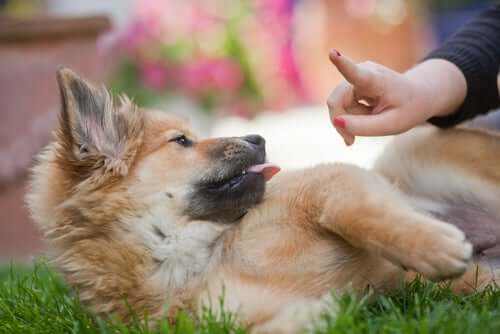Pet Safety with a Balcony: What Precautions to Take

If you have a balcony at home, it’s perfectly normal for you to worry about leaving your pet at home alone. Animals act on instinct and don’t always think about the consequences of their actions. In other words, a pet probably isn’t thinking about its safety while it peeks down from, or leans up against a balcony.
But you’re obviously not going to move just because of that, or give away your pet to avoid an accident. So, what do you do instead? You take precautions. Keep reading to find out which are the most important ones.
Pet safety with a balcony
It’s not just about falling off. There are other risks involved with pets being out on a balcony. Here are some of them.
Be careful with puppies

Puppies are tiny, which means they can easily fall through a small gap. That means you need to be extra careful if you want to avoid accidents. So, what exactly do you do to make sure they can enjoy your balcony without being in danger?
The best option is to put a plastic net underneath the balcony. That will stop them from putting themselves in danger.
Make sure the net is fixed properly on every part of the balcony. You don’t want a dog or puppy starts to chew on the net, and put itself back in danger. If you still don’t trust it, you could use wood instead, although that will stop light from getting in.
Get rid of any toxic plants
Like we said earlier on, falling isn’t the only risk a pet might run on a balcony. The plants you have on it (if you have any), could also be a major health risk for your pet.
Talk to your vet and give them a list of all the plants you have on your balcony. There are some that could harm an animal just from grazing against it. There are also some that can be fatal if your pet ingests them.
Make sure there’s shade
One of the main causes of pet deaths at home is heat strokes. This is something to keep in mind along with all the other things we’ve just mentioned. So make sure there’s some shade on your balcony in case your pet decides to spend time outside in the summer. That will give it somewhere to cool down.
As much as it might like to sunbathe, don’t assume that your pet can spend hours and hours outside without any problems. That’s just not the case.
Leave the door open
The balcony should be a place for your dog to relax and have fun, just like it is for you. It should never be a space for punishment, or a space they can’t leave. You should always leave the door open so your pet can go in and out when it wants.
Don’t leave it by itself

No one likes being alone for a long time, and neither do pets. If you leave your pet alone out there for a long time, it could start to see the balcony as something negative, and won’t enjoy being on it anymore.
A balcony isn’t a place to put your pet if you just want it out of the house. Try not to leave it out there by itself. The separation anxiety that can cause might make your pet do something irrational. Being out on the balcony by itself could also cause it to get the wrong idea and suffer emotionally.
The balcony should be a pleasant place for everyone in your home. Having all the proper safety measures to prevent accidents is a basic necessity. The point is for your pet to be able to enjoy it just as much as you do, and that means you need to always remember not to use it as a punishment area.
Having a balcony at home can be a big pet safety risk. But if you just take the necessary precautions (which is entirely your responsibility), everything will go smoothly, and you can all enjoy the area as much as you want!
If you have a balcony at home, it’s perfectly normal for you to worry about leaving your pet at home alone. Animals act on instinct and don’t always think about the consequences of their actions. In other words, a pet probably isn’t thinking about its safety while it peeks down from, or leans up against a balcony.
But you’re obviously not going to move just because of that, or give away your pet to avoid an accident. So, what do you do instead? You take precautions. Keep reading to find out which are the most important ones.
Pet safety with a balcony
It’s not just about falling off. There are other risks involved with pets being out on a balcony. Here are some of them.
Be careful with puppies

Puppies are tiny, which means they can easily fall through a small gap. That means you need to be extra careful if you want to avoid accidents. So, what exactly do you do to make sure they can enjoy your balcony without being in danger?
The best option is to put a plastic net underneath the balcony. That will stop them from putting themselves in danger.
Make sure the net is fixed properly on every part of the balcony. You don’t want a dog or puppy starts to chew on the net, and put itself back in danger. If you still don’t trust it, you could use wood instead, although that will stop light from getting in.
Get rid of any toxic plants
Like we said earlier on, falling isn’t the only risk a pet might run on a balcony. The plants you have on it (if you have any), could also be a major health risk for your pet.
Talk to your vet and give them a list of all the plants you have on your balcony. There are some that could harm an animal just from grazing against it. There are also some that can be fatal if your pet ingests them.
Make sure there’s shade
One of the main causes of pet deaths at home is heat strokes. This is something to keep in mind along with all the other things we’ve just mentioned. So make sure there’s some shade on your balcony in case your pet decides to spend time outside in the summer. That will give it somewhere to cool down.
As much as it might like to sunbathe, don’t assume that your pet can spend hours and hours outside without any problems. That’s just not the case.
Leave the door open
The balcony should be a place for your dog to relax and have fun, just like it is for you. It should never be a space for punishment, or a space they can’t leave. You should always leave the door open so your pet can go in and out when it wants.
Don’t leave it by itself

No one likes being alone for a long time, and neither do pets. If you leave your pet alone out there for a long time, it could start to see the balcony as something negative, and won’t enjoy being on it anymore.
A balcony isn’t a place to put your pet if you just want it out of the house. Try not to leave it out there by itself. The separation anxiety that can cause might make your pet do something irrational. Being out on the balcony by itself could also cause it to get the wrong idea and suffer emotionally.
The balcony should be a pleasant place for everyone in your home. Having all the proper safety measures to prevent accidents is a basic necessity. The point is for your pet to be able to enjoy it just as much as you do, and that means you need to always remember not to use it as a punishment area.
Having a balcony at home can be a big pet safety risk. But if you just take the necessary precautions (which is entirely your responsibility), everything will go smoothly, and you can all enjoy the area as much as you want!
This text is provided for informational purposes only and does not replace consultation with a professional. If in doubt, consult your specialist.








